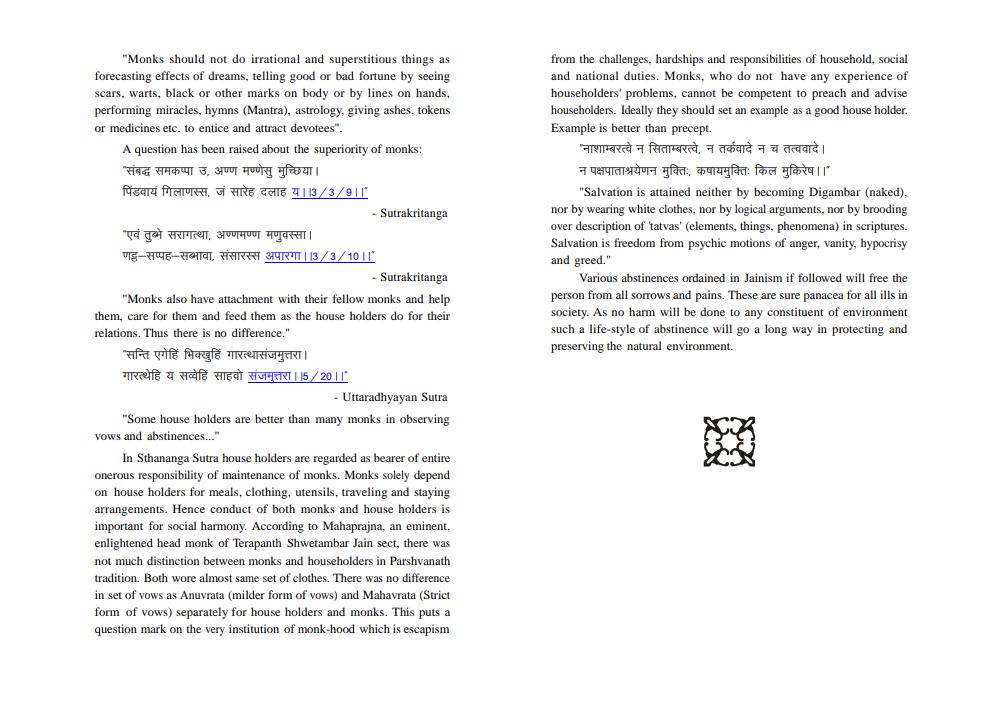________________
"Monks should not do irrational and superstitious things as forecasting effects of dreams, telling good or bad fortune by seeing scars, warts, black or other marks on body or by lines on hands, performing miracles, hymns (Mantra), astrology, giving ashes, tokens or medicines etc. to entice and attract devotees".
A question has been raised about the superiority of monks: "संबद्ध समकप्पा उ. अण्ण मण्णेसु मुच्छिया। ficard frame, J HRE COTE |13/3/9||
- Sutrakritanga "एवं तुझे सरागत्था, अण्णमण्ण मणुवस्सा। 6-746- CI, RR 3RT13/3/1011
Sutrakritanga "Monks also have attachment with their fellow monks and help them, care for them and feed them as the house holders do for their relations. Thus there is no difference."
"सन्ति एगेहिं भिक्खुहिं गारस्थासंजमुत्तरा। Reife HR HIECT WHERT | 15 /20|||
- Uttaradhyayan Sutra "Some house holders are better than many monks in observing vows and abstinences..."
In Sthananga Sutra house holders are regarded as bearer of entire onerous responsibility of maintenance of monks. Monks solely depend on house holders for meals, clothing, utensils, traveling and staying arrangements. Hence conduct of both monks and house holders is important for social harmony. According to Mahaprajna, an eminent, enlightened head monk of Terapanth Shwetambar Jain sect, there was not much distinction between monks and householders in Parshvanath tradition. Both wore almost same set of clothes. There was no difference in set of vows as Anuvrata (milder form of vows) and Mahavrata (Strict form of vows) separately for house holders and monks. This puts a question mark on the very institution of monk-hood which is escapism
from the challenges, hardships and responsibilities of household, social and national duties. Monks, who do not have any experience of householders' problems, cannot be competent to preach and advise householders. Ideally they should set an example as a good house holder. Example is better than precept.
'नाशाम्बरत्वे न सिताम्बरत्वे, न तर्कवादे न च तत्ववादे। न पक्षपाताश्रयेणन मुक्तिः, कषायमुक्तिः किल मुकिरेष।।"
"Salvation is attained neither by becoming Digambar (naked), nor by wearing white clothes, nor by logical arguments, nor by brooding over description of tatvas' (elements, things, phenomena) in scriptures. Salvation is freedom from psychic motions of anger, vanity, hypocrisy and greed."
Various abstinences ordained in Jainism if followed will free the person from all sorrows and pains. These are sure panacea for all ills in society. As no harm will be done to any constituent of environment such a life-style of abstinence will go a long way in protecting and preserving the natural environment.




